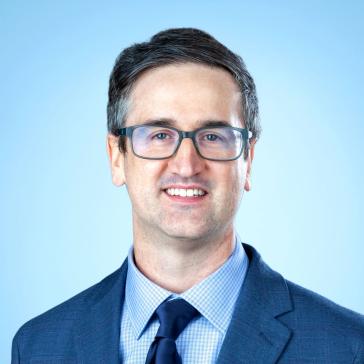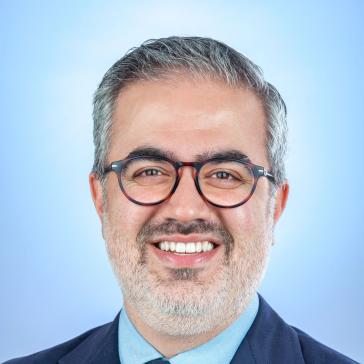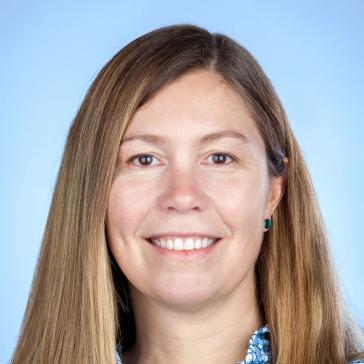CommonSpirit Mercy Cardiology Associates
About
CommonSpirit Cardiopulmonary Rehabilitation & Wellness Durango provides comprehensive cardiovascular care, which is why we are the region's leader in heart and vascular care. When it comes to your heart health, you want the best care possible.
Our Services
CommonSpirit Cardiopulmonary Rehabilitation & Wellness Durango offers comprehensive cardiac services with a team of highly-skilled physicians and clinical caregivers who specialize in everything from heart disease prevention and education, to diagnostics and medical and surgical treatments.
Clinical Cardiology
Clinical cardiology is the diagnosis, management and prevention of diseases of the heart and blood vessels. We provide a full range of non-invasive testing, prevention strategies, guidance, and medications to help you manage heart conditions.
A cardiac consultation is an opportunity for patients to speak one-on-one with a heart specialist about individual cardiac issues, including symptoms, personal risk factors and lifestyle habits that may contribute to heart disease. A consultation may also be scheduled prior to surgery to discuss details of the procedure and any preoperative preparations that may be needed. Consultations for second opinions are also welcome.
A stress test measures blood flow to the heart muscle, both at rest and during stress on the heart. It is performed similarly to a routine exercise stress test but provides images that can show areas of low blood flow through the heart and areas of damaged heart muscle. The test involves taking two sets of images of the heart, one during an exercise stress test while on a treadmill or stationary bike or with medication that stresses the heart, and another while the patient is at rest.
A cardiac nuclear scan, also known as myocardial perfusion imaging, is a test that uses a radioactive substance, or radiopharmaceutical, to produce images of the blood flow to the heart muscle. When combined with stress testing, the scan helps determine if areas of the heart are not receiving enough blood, which is especially useful in diagnosing blocked arteries.
A cardiac nuclear scan may take three to four hours, which includes preparation, a stress test and imaging before and after the stress test. The radiation exposure during a cardiac nuclear scan is minimal and the doses used are safe. However, if a patient is pregnant, suspects she may be, or is a nursing mother, she should let her doctor know. The stress test is safe, but because the heart is being stressed, there is a small amount of risk. Possible rare complications include abnormal heart rhythms or heart attack. Experienced personnel are available to handle any emergency.
During ambulatory monitoring, an ambulatory electrocardiogram (EKG or ECG) records the electrical activity of the heart while one participates in normal activities. Ambulatory monitors are referred to by several names, including ambulatory electrocardiogram, ambulatory EKG, Holter monitoring, 24-hour EKG, or cardiac event monitoring. Many heart problems become noticeable only during activity, such as exercise, eating, stress, bowel movements, or even sleeping. A continuous, 24-hour recording is more likely to detect any abnormal heartbeats that may occur during these activities.
An echocardiography test uses ultrasound (sound waves) to study the structure of the heart and how the heart and valves are working. A probe is passed over the chest and heart and shows a moving image of the heart on a computer.
A tilt table test (also called a passive head-up tilt test or head upright tilt test) records blood pressure and heart rate on a minute-by-minute basis while the table is tilted in a head-up position at different levels. The results of this test will help doctors determine what may be causing symptoms such as light-headedness or fainting spells (also called syncope). The results help determine if other tests may be needed to help diagnose a heart condition. The test results may also be used to evaluate heart rhythm, blood pressure and other measurements.
Cath Lab
The Cardiac Catheterization Laboratory (Cath Lab) at Mercy Hospital provides state-of-the-art angiographic assessment of coronary artery anatomy and the flow of blood through the structures of the heart. The Cath Lab is ready 24/7 to assist patients with life-threatening cardiac or peripheral vascular disease and to quickly restore them to optimal health.
The Cath Lab is complemented by a host of advanced diagnostic imaging tools, including:
- Angiography
- Cardiac stress testing
- Cardiac ultrasound
- Computed tomography (64-slice CT)
- Electrocardiogram (EKG)
- Inter-vascular ultrasound (IVUS)
- Laboratory testing (CRP, lipid profile, etc.)
- MRI
- Nuclear testing
Interventional Cardiology
Mercy’s interventional cardiologists specialize in the use of catheters and stent placement, and provide patients with expert diagnosis and rapid access to the state-of-the-art catheterization laboratory for diagnosis and treatment of high-risk and complex forms of:
- Coronary artery disease
- Intractable angina (chest pain)
- Congenital and valvular heart disorders
Clinic physicians also collaborate with other medical specialists to diagnose and treat patients who have carotid artery disease and peripheral vascular disease or who may be helped by catheter-based forms of therapy.
Device Implantation
Pacemakers and defibrillators are implantable devices that will make the heartbeat regular and treat an arrhythmia if a patient suffers from a slow or a fast heartbeat. Our highly-trained cardiologists specialize in pacemaker implantation, used to slow the heartbeat, as well as defibrillator implantation to treat fast, dangerous heartbeats. Patients are treated on an individual basis and the devices are programmed to meet their lifestyle and needs.
Surgical Treatments & Interventions
Mercy’s vascular and endovascular surgeons treat blood vessel and lymphatic system conditions (vascular diseases). Surgeons perform a full range of vascular and endovascular procedures, including:
- Balloon angioplasty and stenting
- Carotid endarterectomy
- Bypass surgery and endovascular therapy for peripheral artery disease
- Endovascular and open surgical treatment for peripheral artery aneurysms
- Endovascular surgical intervention
- Surgical reconstruction for deep vein occlusions
Cardiac Surgical Services
CommonSpirit - Mercy Hospital partners with cardiac specialists at Penrose St. Francis (PSF) who provide highly specialized care for southwest Colorado patients with diseases of the heart, aorta and lungs. The specialists at PSF perform more heart surgeries than any other providers in the region, including unique, cutting-edge procedures such as minimally-invasive heart valve surgery, transcatheter aortic valve replacement, robotic bypass surgery and robotic lung cancer surgery.
Patients are seen by PSF’s board-certified cardiothoracic surgeons at Mercy Hospital, where testing and evaluation can be done. Surgery is then performed in the state-of-the-art heart surgical suites at Penrose Hospital in Colorado Springs. At no cost to the patient’s family, PSF provides accommodations at the beautiful John Zay Guest House, located directly across from Penrose Hospital.
Cardiac & Pulmonary Rehabilitation
Regular exercise and lifestyle changes, as well as disease management, are key components to achieving optimal recovery and health. Mercy’s outpatient, cardiac rehabilitation program offers:
- State-of-the-art exercise equipment available for all ability levels
- Personalized exercise programming tailored to each individual client
- Expert, up-to-date lifestyle and medical health education
- Individual case management and coaching
- Communication with the client’s medical provider, as needed, while promoting client independence
Cardiac Rehab Phase 2 offers supervised, monitored exercise programs and education. Patients’ heart, blood pressure and blood oxygen levels are carefully monitored and evaluated before, during and after exercise sessions as they progress in their level of exercise.
Pulmonary Rehab is an exercise and educational program designed for those who suffer from emphysema, COPD, asthma or other chronic lung disease. The program helps reduce hospitalizations and lessens respiratory symptoms.
Life Fitness Program
Life Fitness offers long-term, lightly supervised exercise with an individualized education program that supports client independence. It provides guidance and support for a healthy lifestyle and promotes optimal disease management, health and well-being.
Life Fitness can be utilized as a continuation of Cardiac or Pulmonary Rehab. It offers many benefits to clients with a wide range of medical conditions, including, but not limited to:
- Cardiovascular Disease
- Diabetes
- Heart Failure
- Neuromuscular Disorder
- Obesity
- Peripheral Vascular Disease
- Pulmonary Disease
- Renal Disease
Diabetes Management & Education
Mercy Hospital provides disease management services for adult patients with diabetes. Adult diabetes management services are offered to primary care and cardiology patients, as well as to anyone identified as having prediabetes.
Mercy’s skilled providers offer individual and group education focused on medical management of diabetes, medication, diet, exercise, and prevention of complications. The skilled staff works closely with referring providers who continue to provide overall primary care management of their referred diabetes patients.
People diagnosed with prediabetes are at a higher risk of developing type II diabetes and cardiovascular disease. They may effectively prevent diabetes by attending a monthly education class offered at Mercy.
Free Prediabetes Class
Anyone identified as having prediabetes is invited to attend a free class. Attendees learn how to manage prediabetes and help prevent the onset of type II diabetes.
Providers











